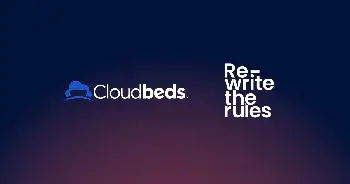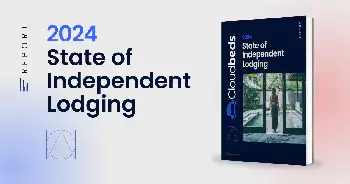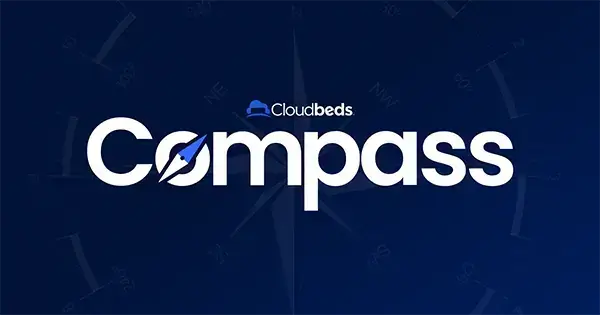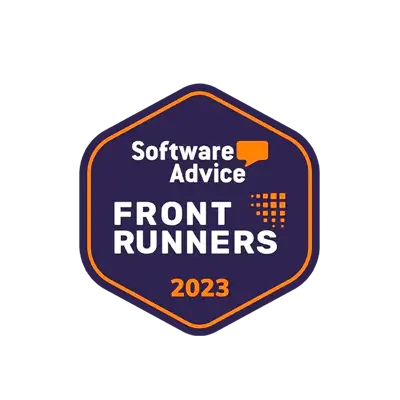
By Lana Cook
How is your hotel being perceived online?
From reviews and social media posts to PR coverage, there is a lot of information flowing about your property. But how can you ensure the conversation is positive?
A reputation management strategy is crucial for hoteliers. Not only does maintaining a positive reputation help attract guests, but it also brings several other benefits, such as higher ADR (hello reputation pricing), better employee morale, and increased loyalty.
In this article, we explore strategies to maintain a consistently positive brand image and the role that technology plays in reputation management.
Hotel reputation management is the practice of monitoring your online presence and enhancing how your properties, services, and brands are perceived by your potential guests, primarily through your online channels. It involves review management, social media monitoring and engagement, and reporting to glean valuable insights that can lead to improved operations. What is hotel reputation management?
The importance of reputation management for hotels
72% of travelers read hotel reviews prior to making booking decisions, emphasizing the importance of consistently managing and improving your hotel’s reputation.
Not only is managing your reputation about presenting your property in the best light possible, but it’s also about ensuring you effectively maintain open communication, remain receptive to customer feedback, and focus on adaptability to guest requests and comments.
What’s more, the better the experience you provide to your guests, the increased likelihood they’ll recommend your property and provide positive feedback to friends and family, increasing hotel revenue in the long run.
Here are just a few benefits of a successful reputation management strategy.
Builds trust and loyalty
Positive reviews and word of mouth for your property build trust and confidence in potential guests. The best type of feedback to build trust is user-generated – online reviews, social media posts, and word-of-mouth referrals. A good reputation is one of the best marketing strategies that a hotel can have.
Identifies opportunities for continuous improvement
Constructive feedback is extremely valuable for hotel owners. The more you know about your guests and their experiences—both positive and negative—the easier it is to make impactful change. That’s why it’s so important to monitor mentions and reviews consistently and implement process improvements.
Generates competitive advantage
Only 42% of hotels have integrated some sort of online reputation management solution for their property. By taking control of your reputation management, you place yourself miles ahead of other competitors throughout the hospitality industry and gain a competitive advantage to make better business decisions.
Another bonus of a review strategy? It actually helps boost your hotel in search engine results. The more reviews you have (and the more current they are), the better your property will perform in SEO (search engine optimization) against the competition.
Top platforms to monitor
Your reputation is impacted by almost every online channel, from reviews on your Google Business Profile, review sites (like Yelp), metasearch sites (like Tripadvisor), or online travel agency (OTA) listings (like Expedia or Booking.com) to news articles and social media platforms like Instagram or TikTok.
The unfortunate reality is that most people will only share when an experience has truly exceeded their expectations or significantly underdelivered.
While hotels don’t have full control over these channels, strategies can be implemented to attract positive word of mouth and mitigate any negative press.
10 reputation management strategies
Managing your hotel’s reputation can be simplified with the right reputation management strategies. These strategies all work towards understanding, monitoring, and improving guest feedback loops.
1. Automate workflows
Start by identifying tasks and workflows that would most likely benefit from automation. For instance, using automated templates to help manage guest communication and feedback collection.
2. Turn on Google Alerts
Setting up Google Alerts for your hotel can help give you peace of mind about the conversations happening online. You can set up alerts for your brand name and any competitors you want to keep track of. Google Alerts also presents a great opportunity to identify link-building opportunities to help boost your online presence.
3. Consolidate reviews
Amalgamate your reviews across your review platforms for easy response management from one central location. Better yet, leverage existing AI tools for real-time response generation to your guest reviews.
Responding to reviews in a fast and professional manner ensures that travelers feel heard and also reassures potential guests that you are actively working to improve operations.
4. Invest in public relations
Effective reputation management is more than just reviews. It also involves creating and managing a positive hotel brand presence and narrative that highlights your unique values.
Collaborate with a public relations firm specializing in hoteliers and lodging businesses to highlight your features and benefits to potential guests via media coverage, speaking opportunities, and awards.
5. Have a crisis management strategy in place
Another great reason to partner with a PR team is in case a larger-scale issue occurs (like a data breach or accident) that requires a crisis communication plan. While we all hope these situations won’t happen, it’s better to be safe than sorry when it comes to recovering your brand’s image due to any negative press or social media backlash.
6. Ensure consistency across your portfolio
If you own multiple properties, ensure consistency across your brand. A poor reputation at one property can trickle down to others; therefore, it’s important to utilize standard operating procedures (SOPs) and technology to ensure guests receive the same level of service regardless of where they stay.
7. Engage with guests in real time
Don’t wait until your guests have left your property to engage with them. Reach out in real-time via guest engagement tools to see how they’re doing throughout their stay.
For example, a quick text after check-in to see if they need anything delivered to their room. Not only does this elevate the experience, but it’s a great chance to address any service recovery opportunities before they turn into a negative review.
8. Establish guest profiles
Establish detailed guest profiles with preferences and feedback to leverage in future marketing campaigns or repeat stays. If you had to move a guest, for example, due to a noise complaint, be sure to place them in the quietest part of the property next time and leave a pair of earplugs on the nightstand.
9. Send meaningful surveys to guests post-stay
If you’re not sending post-stay surveys, it’s time to start. Use technology to craft meaningful surveys that will actually help you understand how guests feel about their stay. Instead of just asking for a rating on a scale of 1-5, ask qualitative questions like ‘What could we work on?’ or ‘What was your favorite part about your stay?’.
Since these questions require more effort on the guest’s side, reward them for their responses by providing a discount code or rewards to use towards amenities.
10. Leverage advanced reporting and analytics
Advanced analytics can help provide a sentiment analysis of guest reviews and mentions online, helping hotels identify common pain points. Look at metrics such as rankings on review sites, review response rates, and review scores, while also examining qualitative feedback to pull out important insights.
By analyzing guest data, you can also benchmark performance and find proactive ways to tailor your services to meet guest expectations and preferences.
Getting started with reputation management
To demonstrate the importance of reputation management across all elements of your guests’ stay with you, we’ve provided an example of touchpoints where your reputation as a hotel comes into play.
Discovery
Naturally, your potential guests will begin by researching their options as part of the discovery phase, leveraging OTAs and social media as their first stop.
Once they find a few properties that catch their attention, they’ll dig a little deeper, visiting their Google Profiles and, ultimately, their websites.
This is known as “The Billboard Effect.” During long booking processes, travelers often go directly to a hotel’s website to find out more information, especially if they’ve seen the property across multiple OTA profiles and other online sites.
The discovery phase is where having a positive reputation pays off. The more visibility you have across channels, the more trust you’ll establish and increase the likelihood of a direct booking.
Pre-arrival
Prior to your guests’ arrival, send a message, whether via SMS, WhatsApp, or email. This message will ultimately set expectations and help relieve any pre-travel stress.
By including pertinent details and instructions for how to check in, where to park, and any other FAQs, you save your travelers valuable time upon arrival and free up space in your lobby.
You’ll also want to provide your guests with ease of access for contacting you should they have any questions. This gives the experience a positive start from the get-go.
In-stay
Upon your guests’ check-in and getting settled into their rooms, send a quick message to your guests asking if they have everything they need and if their expectations meet reality.
Letting them know they can message you at any time if they have questions or concerns creates trust in your guests’ minds that you are informed, caring, and engaged.
Another way to build your reputation? Encourage guests to post about their stay on social media. Set up “Instagrammable” spots on your property and reward guests for engagement, for example, a free drink at the bar when they post.
Post-stay
After check-out, send your guests a text thanking them for their stay with a link to fill out a quick survey. You’ll want your survey to go beyond simply asking your travelers to rate their stay.
A few days after the survey, send a follow-up with a link to leave a review on your platforms of choice. Explain the importance of reviews to your business and send a heartfelt thank you for their participation.
Efficiently managing your guests’ reviews and analyzing sentiment is achievable through the implementation of hotel reputation management tools and software. Hotel reputation management software includes specialized features to monitor reviews, identify common themes, automate processes, and glean relevant insights. Be on the lookout for functionality like chatbots, AI assistants, and instant messaging options, too. These are great tools for establishing feedback loops, automating communication with travelers, and answering guest queries. What is reputation management software?
Top 6 reputation management software
Here are some of the top reputation management tools on the market for hotels.
1. Cloudbeds
Cloudbeds offers a range of solutions to help hotels implement a robust reputation management strategy. From driving guest engagement via automated guest satisfaction surveys, unhappy guest alerts, and feedback tracking to our Digital Marketing Suite Performance dashboard, which uses AI-generated replies to improve your star ratings, web reputation, and conversions.
Cloudbeds also integrates with leading reputation management solutions, including:
2. GuestRevu
GuestRevu is an award-winning guest feedback and reputation management platform that allows you to monitor guest reviews, manage your hotel’s online reputation, and improve guest satisfaction.
3. myHotel
myHotel’s Fidelity Suite can transform guest feedback into crucial insights that optimize their experience and improve your reputation.
4. Reputize
Reputize enables hotels to manage guest experience and online reputation through feedback, personal communication, and marketing automation delivered throughout the guest journey.
5. TrustYou
TrustYou Survey is the guest feedback solution that enables hotels to positively improve their online reputation. Automatically collect post-stay surveys and publish directly to Google and more.
6. Xperium
Xperium is a guest experience and communication solution for hotels to promote upsells, communicate via messages, collect guest feedback, manage their online reputation and deliver contactless experiences.
Integrating reputation management technology
Hotels must ensure that their reputation management technology is integrated with other hotel systems, including their PMS and CRM.
Property management system
Your property management system should be the single source of truth for your hotel’s data. It should store guest information and enable you to set up automated workflows, consolidate guest profiles, and report on performance.
Customer relationship management
You use your customer relationship management software to store guest contact information and pertinent details. Your CRM can also help you personalize communication and marketing to guests based on their feedback and preferences.
The power of reputation management
Your hotel’s perception means everything. The more visibility and positive conversations happening about your property, the more rooms you’ll fill, and at higher rates. The key to a successful reputation management strategy is consistency; engaging with guests throughout the guest journey and providing opportunities for them to share their experiences with you.

















